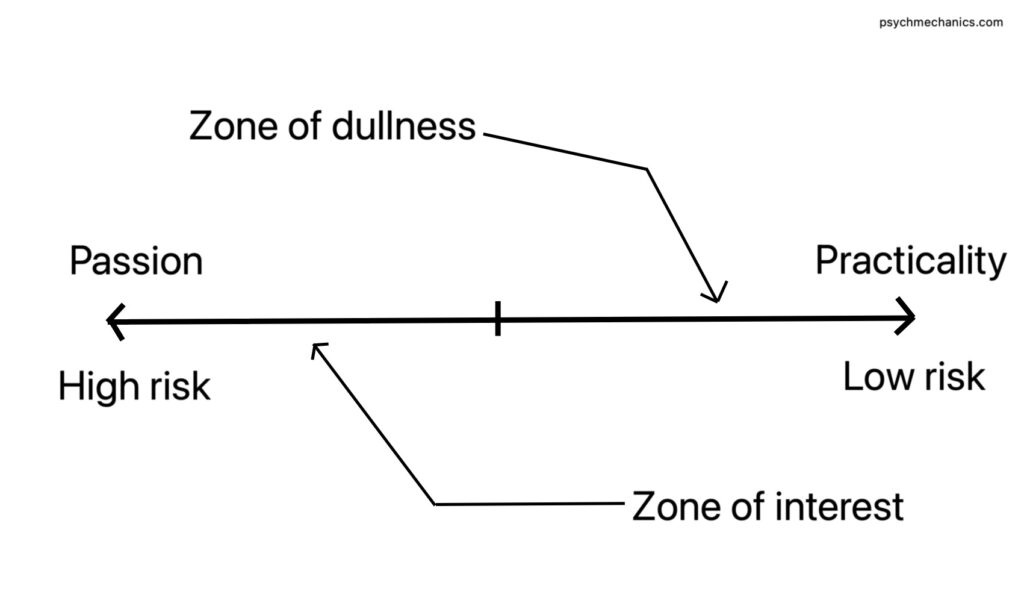There’s a scene in the movie Circle (highly recommended, by the way) where a woman introduces herself and says she has studied Psychology. One of the guys listening contemptuously and sarcastically says:
“Oh, that’s useful.”

Being a Psychology enthusiast, that scene disappointed me. I know that’s not how a lot of people think. But many people do think like that. Many people believe Psychology is useless, especially as a degree.
Useless to you, not to me
People see reality differently based on their beliefs and values. A person who thinks Psychology is useless clearly doesn’t see any benefit in it. It’s hard to convince them to see the value in it.
Others like me are 100% convinced that Psychology is valuable.
Often, people who think pursuing Psychology is useless haven’t really dived into it. Perhaps, they have only seen the ‘trailers’ on social media. You can’t judge a movie based on a trailer.
Many psychology-related pages on social media share nonsense that is repelling. I can understand how repelling it can be to people who only have a surface-level understanding of it.
Is a Psychology degree useless?
It depends on what you mean by useless.
Psychology can help you better understand yourself and others. Is that useless?
It can help you persuade and influence others. Is that useless?
It can improve your productivity and relationships. Is that useless?
People who wonder if Psychology is worth pursuing as a career are usually worried about job prospects. And the concern is genuine. There aren’t many jobs that require a Psychology degree.
Open up any job portal and look at what employers are looking for. You’ll see that most employers are looking for people with technical skills like engineering, medicine, law, and accounting.
Psychology and Business are fields that impart you with high-level, strategy-oriented skills. Unlike technical skills, these skills are highly transferable.
Say you’re a software developer proficient in a coding language. The field of computer science is rapidly evolving, and the technical know-how you have might become irrelevant in the future.
But knowing what makes people tick and how to run a business will never go out of style. These are skills you can apply in any industry.
Not many people understand this. When a relative heard that I was pursuing Psychology, he asked, “So, you want to be a shrink?”
This is the perception a lot of people have about Psychology. They think Psychology is all about mental health. While mental health is undoubtedly a big part of Psychology, that’s not all it’s about.
Fields, where you can apply psychology, include:
- Marketing
- Sales
- Customer service
- Human Resources
- Management
- Healthcare
- Law enforcement
- UX design
In addition, Psychology improves your meta-skills like:
- Research
- Communication
- Critical thinking
- Problem-solving
Why is a Psychology degree considered useless?
Why doesn’t the job market doesn’t value Psychology?
If Psychology is useful, why are so few employers looking for a candidate with a Psychology degree?
The answer: Most employers don’t see the value in Psychology.
Why would they? They haven’t really dived into it. They think like my relative. To them, Psychology is all about being a shrink.
But there are a few intelligent employers who do see the value in a Psychology degree. Not easy to find them, but they do exist.
The job market and employers value tangible skills that they can see. If you can fix someone’s computer, they can see the value you provided to them. They’re going to pay you handsomely for solving a tangible and visible problem.
Psychology solves invisible problems. Healing trauma, increasing productivity, and getting better at influencing others are invisible, intangible, and obscure skills. It’s hard for me to show you clear, visible proof if I claim to be good at these things.
Another reason Psychology is undervalued in the job market is because it’s a generic and broad subject. It has many sub-fields. The job market values specialization.
Many people can do generic stuff, but only some can specialize. Specializations are rare and, therefore, valuable. Plus, many problems require specific, not generic, solutions.
You have to specialize to become a good problem-solver and, thereby, appealing to the job market.
If you have done a Bachelor’s in Psychology, that doesn’t have much use because you haven’t specialized. Taking up a specialization in your Master’s helps you command better compensation.
Passion vs. Practicality
Choosing the right career is one of the most important and difficult decisions one must make. There are a lot of variables that go into this decision.
Choosing the right career for you comes down to being honest about what you want.
There’s a passion-practicality spectrum all careers fall on. On one end of the spectrum are things and activities you’re passionate about. These tend to have low market demand, or turning them into successful careers is tough. The odds aren’t in your favor.
For instance, musicians.
Many people who’re into music are uninterested in pursuing it professionally because they understand it’s tough, if not impossible, to make a career out of it. More musicians fail than succeed.
On the other end of the spectrum, we have things and activities that are boring or even unpleasant but have high demand. Or it’s easy to turn them into successful careers. The odds are in your favor.
Many accountants, for example, find their work tedious, but they do it anyway because they’re decently compensated. These are practical people. They don’t believe in turning hobbies into careers.

So, where do you lie on this spectrum?
What’s more important to you? Passion or practicality?
Fortunately, you don’t have to choose either. Your career could fall in the middle of the spectrum. You could be interested in what you do, and what you do has decent demand in the job market.
But remember, choosing that middle path is likely to yield average results. It’s people who’re passionate and practical people who go very far in their careers.
A passionate person can go all in without worrying too much about the market, and a practical person is all about the market. A passionate person becomes so good at what they do that the market can’t ignore them. A practical person goes where the market goes.
The person in the middle is always trying to balance passion and practicality. It comes in the way of maximizing success, but at least this approach is not as risky as pure passion or dull as the purely practical approach.
Choosing your ideal career
You need to have a vision for your career. What do you see yourself doing career-wise in the future?
For me, I always loved researching and writing. I spend most of my time doing that.
What does your ideal day look like? You have to answer this question because you’ll live this day repeatedly.
How does your career fit into your ideal day?
What type of people do you want to work with?
Do you want to work independently or within a team?
Ideally, your work should align with who you are. What does that mean?
That means your work should be in line with your core values. It should satisfy your unique personality needs.
For instance, one of my core values is ‘growth’. I can’t be in a career where I can’t grow.
Finding the right career for you is a matter of figuring out who you are and owning that. We attract people and jobs that align with who we are.
I understand that advice may seem a bit vague and ‘invisible’. But it’s the most important thing to keep in mind if you care about job satisfaction.
“The best and most beautiful things in the world cannot be seen or even touched – they must be felt with the heart.”
– Helen Keller
